
The other night I watched Housekeeping, for the first time in some twenty-five years. It’s the first film that the Scottish director Bill Forsyth made in America, and though it was warmly received by critics at the time, it had few of the trademark comic qualities that made Gregory’s Girl and Local Hero so popular, and it was not a great hit. It’s a haunting, quirky drama, based on a novel by Marilynne Robinson, about two sisters living in a small Idaho home, who are looked after in a ramshackle way by their unconventional aunt (played by Christine Lahti). It was pleasing to discover on seeing the film again that it had lost none of the qualities that so impressed me back in 1987. There’s a ghostliness to it that makes the film unique, a combination of the mystery behind Lahti’s refusal to engage with society, and an American small town where the season seems always to be winter.
Housekeeping is not a forgotten film, though those who know about it – let alone those who cherish it – seem few. But it got me thinking about the films in the 1980s that I saw that seem to have been forgotten, or at least have been unjustly neglected (by most). Some of those I recalls seem not to be available commercially at all, ensuring that they stay forgotten, while I have to dredge the memories. Of course, many hundreds of films from that decade are similarly forgotten, often with justification. Other forgotten films of merit will have their champions of course, but here are a few that I remember with particular fondness.
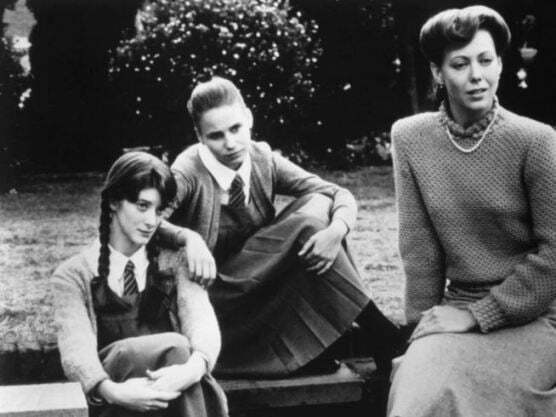
Secret Places (UK 1984 d. Zelda Barron)
This subtle and engaging film stars Marie Theres Relin, Tara MacGowran and Jenny Agutter, and was based on a novel by Janice Elliott. It tells of the friendship between an English schoolgirl and a German refugee girl at boarding school during the Second World War, and adroitly covers issues of friendship, loyalty and nation. I remember being entranced by it, seeing it two or three times, and happily discovering the novels of Janice Elliott as a result (a skillful, overlooked writer). It attracted some attention at the time, and on the strength of it its first-time director Zelda Barron went to America, made a dance-craze film with the unfortunate title Shag and worked with Warren Beatty (probably the only person ever to graduate from continuity to direction, she doesn’t even have a Wikipedia page, for shame). I remember a luminous performance from MacGowran (daughter of actor Jack) and a well-balanced handling of conflicting sympathies. It had a VHS release once, but never made it do DVD and I don’t think it ever had a UK TV screening, so essentially it’s a lost film. For shame.

Atlantic Rhapsody – 52 myndir úr Tórshavn (Faroes 1989 d. Katrin Ottarsdóttir)
It may sound wilfully obscure to pick a feature film from the Faroe Islands as a forgotten film of note, but this ingenious film – the first ever feature produced in the Faroes – did quite well in festivals in 1989, and I came across it at the London Film Festival. Its subtitle translates as ‘fifty-two pictures from Tórshavn’, and it depicts twenty-four hours in the life of the Faroes through fifty-two interlocking narratives, so that as one mini-story ends a character or incident from it spills over into the next story, and so on chronologically until it builds a remarkably effective picture of time, place and people. I was greatly impressed by its ingenuity and technical skill, including (as I recall) excellent performances by actual Tórshavn inhabitants. It would certainly be good to see the film again, and I wonder whether Richard Linklater was one of those who saw the film on the festival circuit, because the premise of his debut feature Slacker (made two years later) seems remarkably close to Katrin Ottarsdóttir’s film. It is available on DVD from Danish company Blue Bird Film, with English subtitles, so not exactly forgotten – but elusive, and (outside of Denmark and the Faroe Islands) neglected.

Static (USA 1986 d. Mark Romanek)
This can be found on DVD, but the disc that is available is of dreadful quality – it looks like it was mastered from a 10th-generation VHS. A film not only forgotten but sorely neglected. And given Mark Romanek’s reputation subsequently as a pop video director and for One Hour Photo it is extraordinary that his inspired feature film debut should be so overlooked. Apparently Romanek himself has dismissed it and discounts it from his own filmography, but goodness knows why. It tells of a trouble young worker at a crucifix factory (Keith Gordon) who claims to created a device which can show pictures from heaven. We never know whether the TV pictures he sees are indeed heavenly, or just static, but it’s his belief that matter. It’s a film that champions the outsider, a tribute to those doomed always to be misunderstood. I remember in particular the mission in life that he sets for himself, “to make people happy, and not sad”. A quirky, sweet and original piece of work, a cult film that should have been and for some sad reason never was.
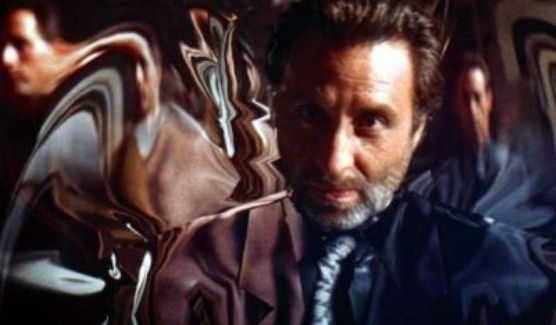
Fellow Traveller (UK 1989 d. Philip Saville)
This is one of the best British political films made. Smartly scripted by Michael Eaton, it tells of a 1950s American scriptwriter with Communist sympathies (Ron Silver) who is unable to work in America after falling foul of the McCarthy witch-hunts and moves to Britain, where he is reduced to writing for children’s television. The plot follows his investigations into the apparent suicide of a colleague, while his dilemma is amusingly counterpointed by the episode of the Robin Hood TV series on which he is working. The film was probably way too clever for its own good, throwing in film history, TV pastiche, film noir allusions and a sharp political intelligence, but it would delight the right audience now. It gained a VHS release years ago, but nothing since that I can find. Alas, alas.
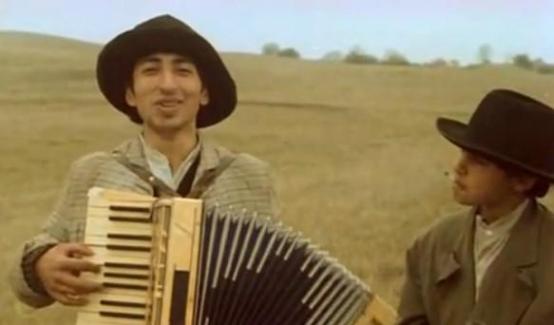
Who’s That Singing Over There? (Ko To Tamo Peva) (Yugoslavia d. Slobodan Sijan)
This only just qualifies as a 1980s film, since it seems to have been released on 1 January 1980. It’s a revered film in Serbia but scarcely known elsewhere – I can recall seeing a trailer for it in a British cinema, but then it never got a British release, and presumably wasn’t seen much further. My memory of it is of an excellently crafted gem with a bleak sense of humour. It tells of a group of people travelling on a bus to Belgrade on 5 April 1941 (the day before the German invasion of Yugoslavia), and the various disasters that befall them along the way. In particular I remember that in the aftermath of each disaster, two gypsy characters would walk away from the action, up to the camera, and sing a mournful folk song. It was a particularly effective breaking down of the fourth wall, serving as commentary on the vicissitudes of fate and our helplessness in the face of all that life may throw at us. There’s a DVD with English subtitles on this Serbian site.
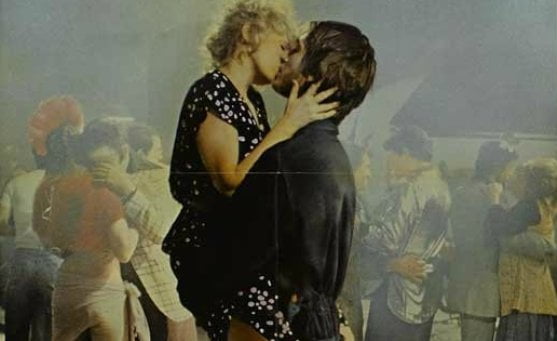
Montenegro (Sweden 1981 d. Dušan Makavejev)
More from Serbia, by way of the bracingly controversial Dušan Makavejev, renowned for his film of challenging sexual and/or political content, notably the widely banned W.R.: Mysteries of the Organism (1971) and Sweet Movie (1974). Montenegro is relatively conventional for Makavejev, in that it tells a recognisable story and has little to send most audiences walking out of the auditorium. But it is probably his best film (or at least, since Switchboard Operator in 1967) and has been rather overlooked despite the strong critical reception it had at the time. It tells of a bored American wife of a Swedish businessman (played by Susan Anspatch) who escapes conventionality by discovering the wild side of life at a bizarre bar run by Serbians. She returns to her Swedish family, and poisons them all. Had Buñuel been Serbian, he might have made films like Montenegro. It also makes haunting use of Marianne Faithfull’s superb version of ‘The Ballad of Lucy Jordan’ on the soundtrack, though Anspatch’s character takes a rather more positive approach to her situation than the Dr Hook song allows. It’s readily available on DVD, with a DVD sleeve that makes it look like it’s a wacky character comedy in which everyone is lovable. It’s anything but.
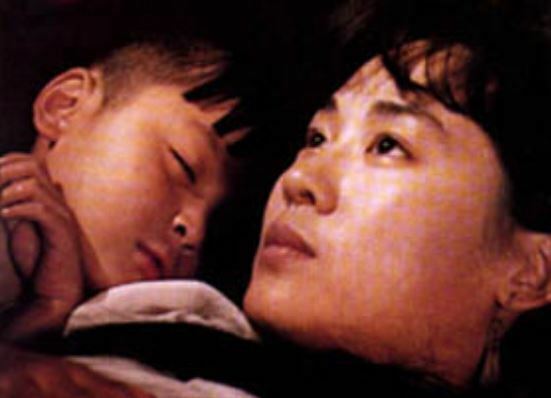
A Girl of Good Family (A Good Woman / Liangjia funu) (China 1985 d. Huang Jianzhong)
The mid-1980s was when Chinese cinema burst upon the world scene, headed by Chen Kaige’s Yellow Earth (1984). Among the several thematically intriguing and visually beautiful films that came out of Chinese studios at this time, this gem seems oddly to have been largely forgotten. I struggled to find any information on it under the English title that I remember (which I’ve now confirmed was how it was billed for the 1986 London Film Festival), and wondered if I’d misremembered The Girl from Hunan (1987), which is similarly about a young woman in an arranged marriage with a child. I’ve not seen the latter, but in this film the woman in question is married to a six-year-old (who looks upon her as his mother) and ostracised by neighbours who are suspicious of her as an outsider. Its picture of the social imprisoning of women in China (the film is set in the 1940s) is economically told, the tragedy unfolding more through imagery than dialogue. A film of deep feeling and immaculate technique. The Chinese cinema database Dianying gives its English title as A Good Woman. It would be worthy of rediscovery.
Delighted that you included Fellow Traveller in your ‘forgotten’ list. It was me who released it on VHS, on the BFI’s Connoisseur label, and I find myself often referring folk to it. but of course it’s really hard to find. It is a terrific film, that should be required viewing for any who found Trumbo less than riveting.
Ah, that brings back memories – the Connoisseur label. It was, as I recall, an ingenious film that nevertheless left you at the end thinking about what it had to say rather than how clever it was at saying it.
A quite random list of the ‘forgotten’ – I recently found an old list of films I’d viewed at the time, and picked out half a dozen that resonated the most. I’ve got DVDs on order for Who’s That Singing Over There and Atlantic Rhapsody, so we’ll see if reality matches up to memories.
It’s great to be able to report that two of the films I mention that I’d not seen since their first release are every bit as good as I remembered them to be.
Who’s That Singing Over There? might have been played simply as broad comedy with national types to appeal to a Serbian audience alone, but its bleak undertones and distinctive setting in the flatlands of Yugoslavia make it something universal, and exceptional. The sort of insight into history and society that only film can provide. And the interludes with gypsy song work every bit as well as I thought they did at the time.
Atlantic Rhapsody is an ingenious gem – a cinematic tag race through Tórshavn in which one brief story runs into another, over and over, until it builds up into a complete picture of a society in miniature over 24 hours. I’d forgotten about the striking elements of fantasy that are thrown into the mix. A wholly original piece of work, which apparently remains the only Faorese-produced feature film ever made[correction – there have been a few, including two more from Atlantic Rhapsody director Katrin Ottarsdóttir – see https://en.wikipedia.org/wiki/Cinema_of_the_Faroe_Islands]. A pleasure to watch for its filmmaking skill, its geographical and sociological interest, and to see how the worst of 1980s fashions even made it to the Faroe Islands.